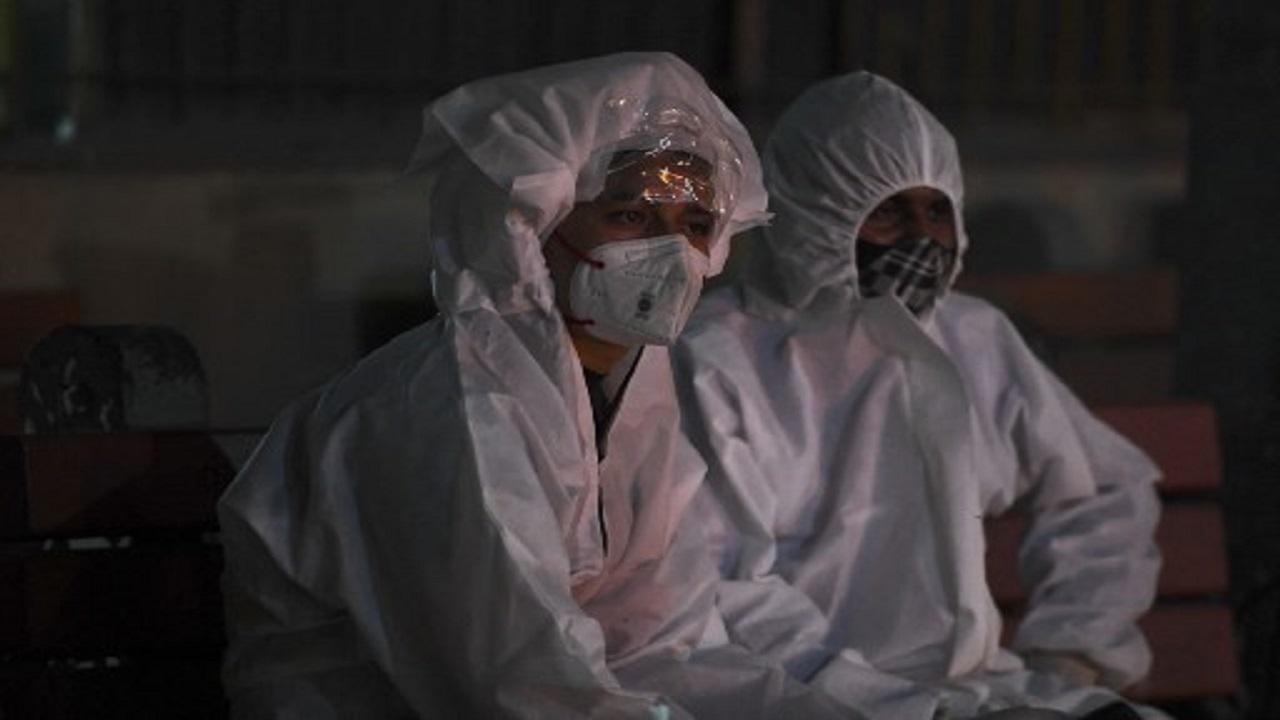The UN health agency named the B.1.617.1 variant of the Covid 19 as "Kappa" while the B1.617.2 variant was dubbed “Delta”. Both the variants were first found in India.

Photo used for representational purpose. Pic/AFP
The B.1.617.1 and B.1.617.2 variants of the Covid-19, first identified in India, have been named as ''Kappa'' and ''Delta'' respectively, the World Health Organisation (WHO) announced on Monday as it named various variants of the coronavirus using Greek alphabets.
ADVERTISEMENT
"Today, @WHO announces new, easy-to-say labels for #SARSCoV2 Variants of Concern (VOCs) & Interest (VOIs). They will not replace existing scientific names, but are aimed to help in public discussion of VOI/VOC," Dr Maria Van Kerkhove, WHO''s technical Covid-19 lead, tweeted on Monday.
The UN health agency named the B.1.617.1 variant of the Covid-19 as ''Kappa'' while the B1.617.2 variant was dubbed “Delta”. Both the variants were first found in India.
The WHO's move came nearly three weeks after India objected to the B.1.617 mutant of the novel coronavirus being termed an "Indian Variant" in media reports with the Union Health Ministry pointing out that the UN's top health organ has not used the word "Indian" for this strain in its document.
Also Read: B.1.617 Covid-19 variant has reached 53 nations: WHO
On May 12, the ministry dismissed as "without any basis and unfounded" media reports that have used the term "Indian variant" for the B.1.617 mutant strain, which the WHO recently said was a "variant of global concern".
"Several media reports have covered the news of the World Health Organisation (WHO) classifying B.1.617 as a variant of global concern. Some of these reports have termed the B.1.617 variant of the coronavirus as an ''Indian Variant''," the ministry said in a statement in New Delhi.
"These media reports are without any basis, and unfounded," it said.
In a statement, the UN health agency said on Monday that an expert group convened by WHO has recommended labeling using letters of the Greek Alphabet, i.e., Alpha, Beta, Gamma, which will be easier and more practical to discuss by non-scientific audiences.
"The established nomenclature systems for naming and tracking SARS-CoV-2 genetic lineages by GISAID, Nextstrain and Pango are currently and will remain in use by scientists and in scientific research,” it added.
It said the WHO and its international networks of experts are monitoring changes to the virus.
"If significant mutations are identified, we can inform countries and the public about any changes needed to react to the variant, and prevent its spread,” it added.
Globally, systems have been established and are being strengthened to detect “signals” of potential variants of concern (VOC) and interest (VOI) and assess these based on the risk posed to global public health. National authorities may choose to designate other variants of local interest/concern, it added.
This story has been sourced from a third party syndicated feed, agencies. Mid-day accepts no responsibility or liability for its dependability, trustworthiness, reliability and data of the text. Mid-day management/mid-day.com reserves the sole right to alter, delete or remove (without notice) the content in its absolute discretion for any reason whatsoever.
 Subscribe today by clicking the link and stay updated with the latest news!" Click here!
Subscribe today by clicking the link and stay updated with the latest news!" Click here!






